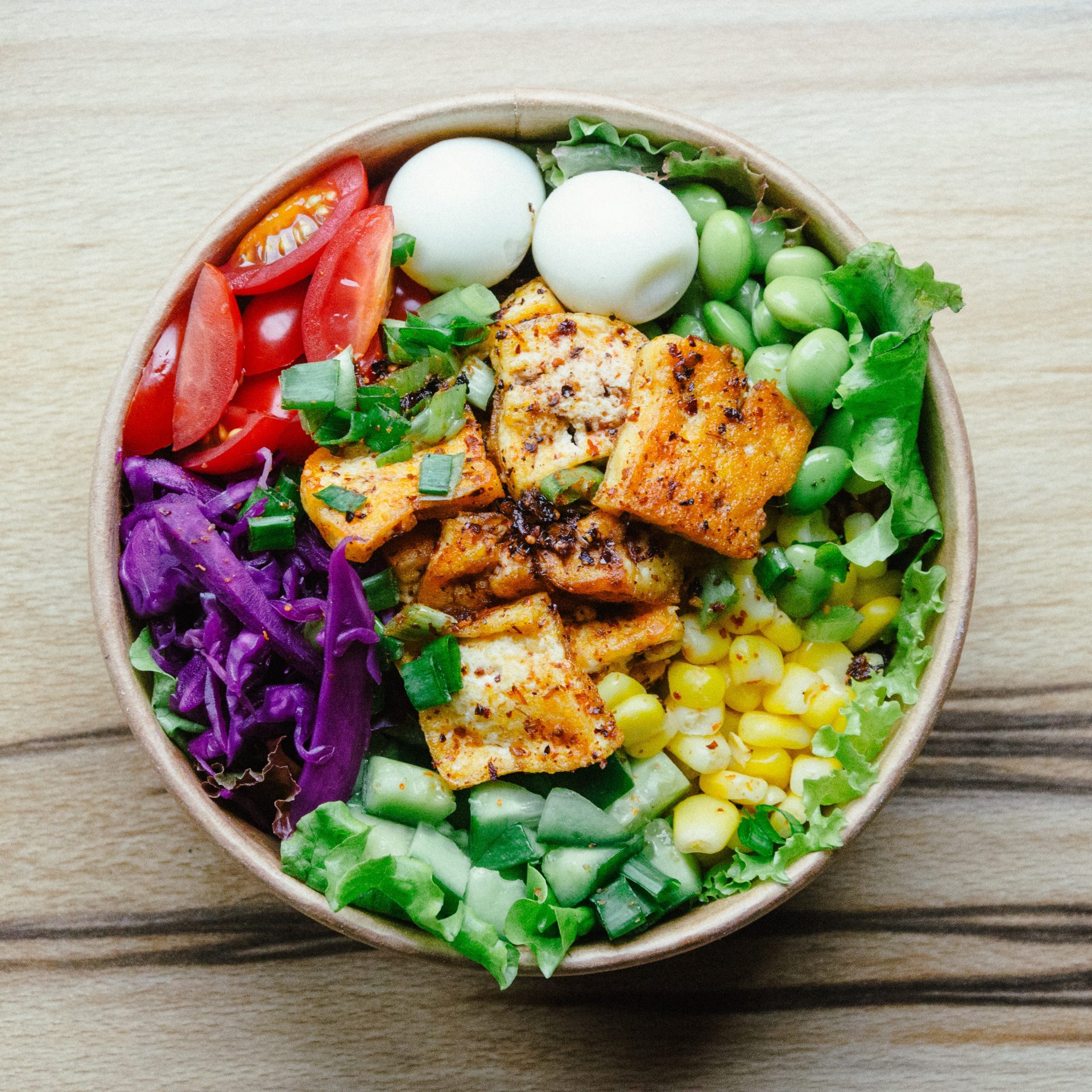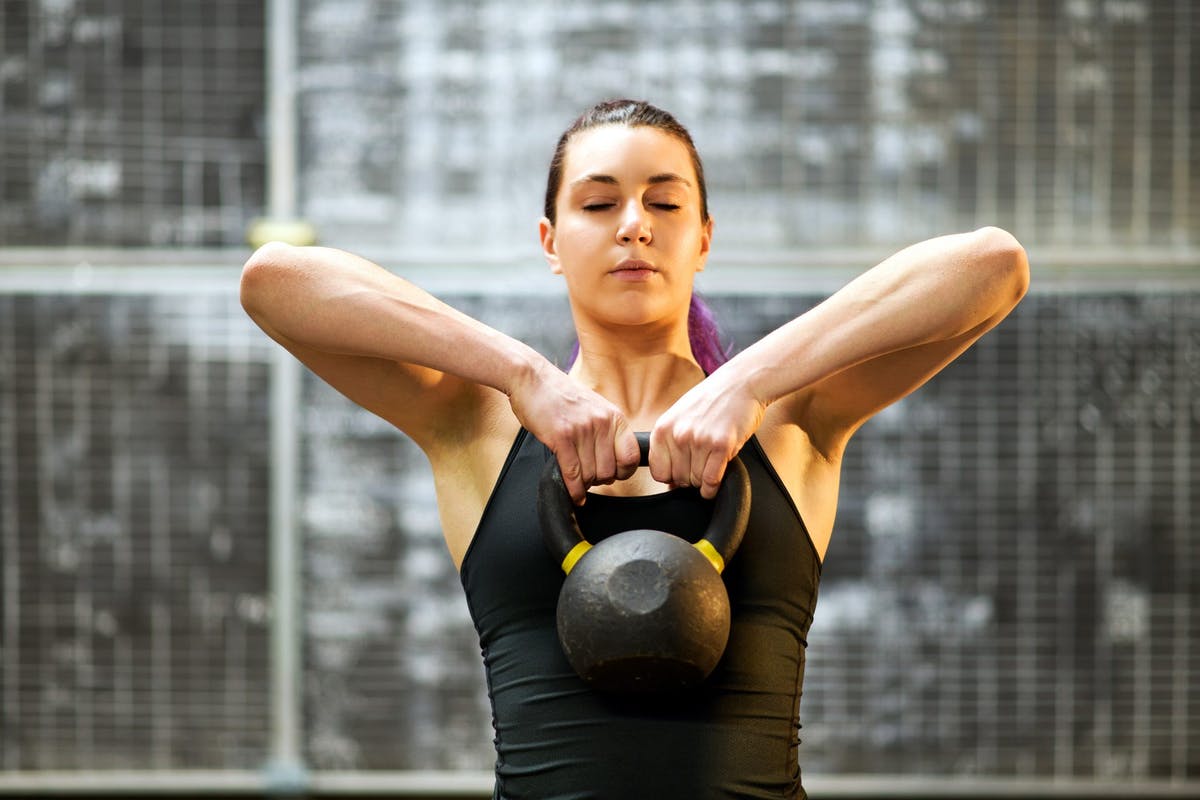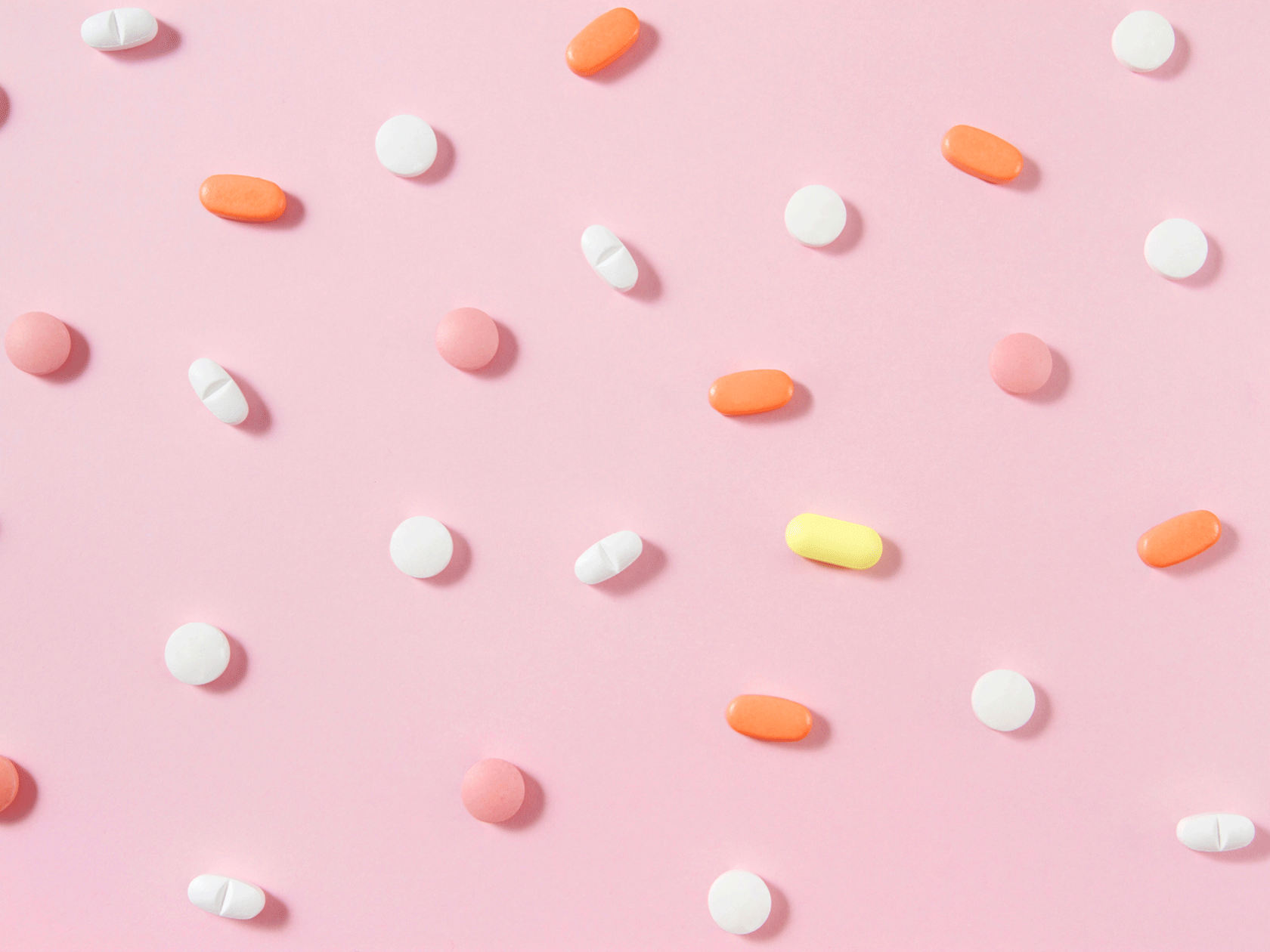Our obsession with protein has moved beyond the realms of bodybuilders to become a staple of everyday wellbeing – but should we really be supplementing as standard if we want to get stronger?
You can’t move for protein powder adverts these days. No longer confined to the pages of bodybuilding magazines and specialist gyms, protein supplements have been mainstream for years now, with brands targeting women, vegans, runners – people who might not have been their intended audience a decade ago.
According to the British Nutrition Foundation, adults need around 0.75g of protein per kilogram of body weight a day. That equates to roughly 45g for women aged 19-50, or to put it in practical terms: 7.5 eggs, one small chicken breast or 500g of tofu. That recommended daily allowance (RDA) is the amount we need just to stay functional, so do we need more protein if we’re regularly strength training and building muscle? And if so, should we be supplementing or can a whole foods, balanced diet serve us just as well as supping shakes?
You may also like
Protein: these are the signs that you may have a protein deficiency, and what you can do about it
“If you don’t eat a restricted diet, there is absolutely no need to take a protein supplement,” confirms nutritionist Dr Somi Igbene.
That sounds pretty conclusive, right? But increasing numbers of us are plant-based, reducetarian and/or active, and sometimes it really is just easier to drink a quick shake for breakfast than it is to make scrambled tofu on seed bread toast or eat huge handfuls of nuts. Whether we opt for a supplement or whole food meal, how can we guarantee that we’re getting all the benefits protein can offer – particularly when it comes to working out?
Specialist registered dietitian, Nichola Ludlam-Raine agrees with Igbene that “if building muscle is your goal, it is usually not necessary to supplement as you can build muscle with food sources of protein alone, as part of a healthy balanced diet.”

She goes onto explain that “there are plenty of rich protein sources that we can easily include within our diet, such as meat and fish, eggs, dairy, beans and lentils, grains and soya products to name a few. Protein supplements are only needed if you are not meeting your needs from food alone.”
WHEN TO EAT
It’s long been believed that we should be eating protein ASAP after a workout, in a bid to help muscles start recovering immediately. However, that may no longer be the whole story. While it’s really important to refuel with proteins and carbs after a workout, for most of us, it’s not going to be detrimental to our strength or muscle growth if we don’t eat immediately.
You may also like
Brunch recipe: get your protein intake the fun way with a mouth-watering shakshuka
Igbene says that “you don’t need to eat within a strict timeframe after your workout; as soon as you can is fine”, while Ludlam-Raine suggests having a snack that contains both protein and carbs within an hour of a high-intensity workout in order to aid muscle repair and replenish glycogen stores.
Try: A post-workout protein shake and a banana, a piece of nut butter toast or a simple glass of milk – if you can stomach it. If you don’t feel up to eating, make sure your next meal has plenty of protein in it.
Ideally, we should be aiming for a protein source at each meal of around 15-20g (or more if your requirements are higher), or as a snack if you’re having a meal that’s low in protein like pasta with tomato sauce. You don’t have to make anything fancy; sometimes the cheapest and most simple meals can be the most nutritious.
Try: Two slices of Hovis’ Seed Sensations bread (or similar) with half a tin of Heinz baked beans contains a total of 18.9g of protein – a healthy, quick and protein-packed meal.
CAN PROTEIN SHAKES MAKE A PHYSICAL DIFFERENCE?

Protein isn’t a miracle pill; taken alone, it won’t make you stronger but it can support the hard work you’re putting in during your workouts, helping you to get more bang for your buck.
A 2015 study published in the Sports Medicine Journal found that for untrained people, taking protein had no impact on lean muscle mass or strength training during the first few weeks of resistance training. As the frequency of their training and volume of weights increased, however, protein supplements helped to promote muscle hypertrophy (strength) and enhanced muscle strength gains. Researchers also found that taking extra protein accelerated gains in aerobic and anaerobic power (great for all kinds of sports and fitness activities, from jogging to powerlifting and boxing).
A more recent piece of research, this time in Frontiers in Nutrition, concluded that taking protein after a workout optimised physical performance and helped with muscle recovery from both resistance training and endurance exercise.
You may also like
High protein lunch ideas: try these quick, easy and nutritious recipes
Clearly, protein matters and protein can make a difference – but what form we take our protein in counts. As our experts have said, whole foods trump powders.
MORE THAN JUST A SUPPLEMENT
It’s worth remembering, however, that many protein powders don’t just contain protein. Many also include a whole load of vitamins and minerals – some of which might be harder to get from whole foods alone, especially if you’re not omnivorous. And we should also bear in mind that protein isn’t the only thing we need if strength is our goal; as well as taking on board adequate amounts of protein, Ludlam-Reine recommends concentrating on consuming a sufficient number of calories (“muscle building is most effective when we are eating a surplus to our calorie needs”), enough carbs to fuel workouts and aid muscle repair and the full range of essential amino acids.
“A supplement that I occasionally recommend to frequent gym go-ers (i.e those who train multiple body parts on a daily basis) is creatine, as it has been shown to increase both muscle size and strength,” she adds.

She’s right, of course; according to a study from Canada’s St Francis Xavier University, taking two 20g of creatine four times a week helps to maintain physical strength without doing any training. But it’s worth saying that if you eat meat, your liver and kidneys make creatine already – meaning that unless you’re doing a lot of training, you probably don’t need any extra.
So, if we’re to prioritise whole food proteins, are they are created equal? Should we see chicken and turkey as the holy grail of lean protein or do vegans have a chance of building muscle through plants alone?
Ludlam-Reine says that when it comes to protein quality, “it’s important to ensure that the meal we’re consuming contains all of the nine essential amino acids (EAAs) which are the building blocks of protein that cannot be produced in the body. Animal protein sources, such as meat, dairy products, fish and eggs are considered high quality as they contain all EAAs in varying amounts. However, some plant-based sources of protein such as Quorn (mycoprotein) and soya products also contain the full amount of EAAs. If you follow a plant-based diet, you can obtain the EAAs you need by combining your protein sources within your meal, eg beans and lentils or toast, or nuts and seeds.”
You may also like
The best vegan protein powders, as tested by the Strong Women team
If you eat meat, you’re best off trying to consume a range of animal and plant proteins. “If you don’t follow a restricted diet, a mix of plant and animal proteins is best. Plants provide fibre and certain phytochemicals that are absent in animal proteins,” Igbene explains.
TO SUPPLEMENT OR NOT TO SUPPLEMENT
In Igbene’s opinion, “protein powders are a marketing ploy; if you have extra money to waste, by all means, invest.”
With that stark admission, what should those of us who like taking shakes do?
If you’re set on taking a protein powder, it’s really important (if you’re after a plant-based one) to buy a product that contains all your essential amino acids. That means opting for a soy powder or a blend of protein sources, such as pea, hemp and rice. The key here is in getting the full gamut of amino acids and adding variation into your diet – so mixing up where you get your protein is a good idea.
HOW TO GET ENOUGH PROTEIN INTO YOUR DIET
- Concentrate on maintaining a balanced diet: ensure you’ve got a protein source in every meal and most snacks and prioritise getting your nutrients from foods, not supplements.
- Try to eat a range of proteins: if you’re a meat-eater, make sure you eat plants and plant proteins, and concentrate on chomping a range of different plant proteins if you’re a herbivore.
- Choose your supplements carefully: check the label to see what’s in it and whether it has the full range of essential amino acids.
- Think about how your workouts time with your meals: do you workout just before breakfast or dinner? Could you squeeze a snack in after a session if your meal is still ages away?
- Put the effort into your workouts: protein alone can’t build muscle but it can help you to reap the benefits of your sessions so focus and enjoy your workouts.
- Consider how you feel: do you generally feel strong and energetic? If so, there may be no need to think about supplementing at all. As always, go with how your body feels and do what you think works for you.
Follow @StrongWomenUK on Instagram for the latest workouts, delicious recipes and motivation from your favourite fitness experts.
Images: Getty / Unsplash
Source: Read Full Article
